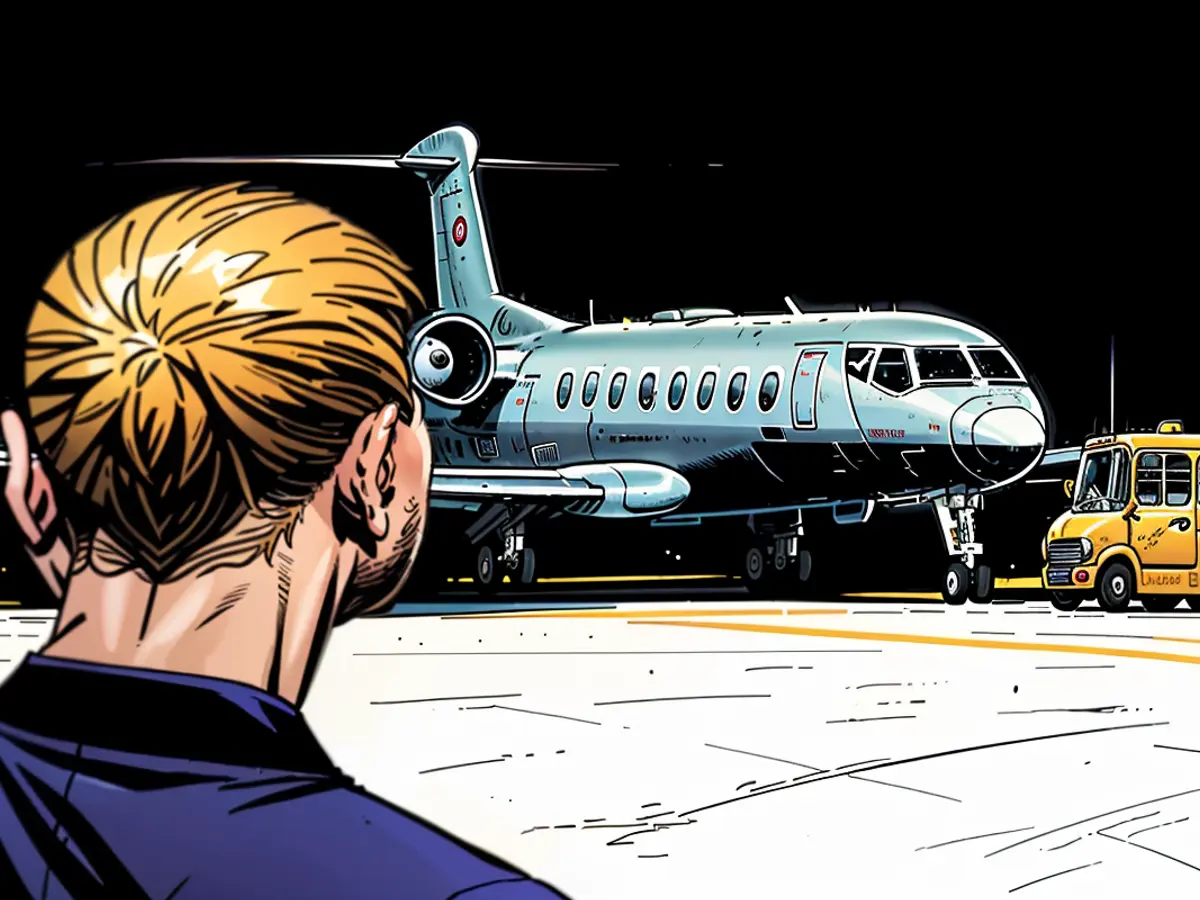Buschmann feared the hostages would be poisoned before departure.
Even after the freed hostages were on German soil, Justice Minister Buschmann continued to fear for their lives. His concern was that the Russian intelligence service might not uphold the agreement.
When exchanging prisoners with Russia, Federal Justice Minister Marco Buschmann had doubts until the end about whether the Russian side would stick to the agreement. "Even after the plane with the freed prisoners landed in Cologne/Bonn, we couldn't be sure," the FDP politician told "Der Spiegel" in an interview. After all, the Russian intelligence service FSB regularly uses poison "to destroy the lives or health of people in the most perfidious way, directly or indirectly."
After landing in Germany, the freed prisoners were therefore examined by doctors: "That was my personal big concern: that Russia had poisoned them before departure. But fortunately, that doesn't seem to be the case based on what we know so far."
The Federal Justice Minister advises Germans against traveling to Russia. "In Russia, no one has been safe for a long time. And I strongly advise against going to a country where no one is safe without a compelling necessity," said Buschmann: "I can't reassure anyone that Putin won't take more political prisoners."
However, he does not believe that the exchange has increased the risk. "Under Vladimir Putin, nearly 40 journalists have been killed. Countless have been arbitrarily imprisoned," said Buschmann: "There was no security in this country before this exchange."
"No Precedent is Created"
He also sees no precedent in the prisoner exchange. "Precedent is primarily a term from Anglo-American law. If a US court has decided something once, it must stick to it," the Federal Justice Minister told "Der Spiegel" further. "But no one, including Vladimir Putin, can refer to our political decision in this case."
The FDP politician rejected criticism that Germany had made itself vulnerable to future similar situations by releasing the "Tiergarten Murderer". "In this specific individual case, we believed that the benefits outweighed the significant counterarguments. No vulnerability is created," said Buschmann: "Putin can never rely on simply bundling arbitrary prisoners to move us to do something we don't want to do. We decide sovereignly."
In the prisoner exchange, Russia and Belarus released 16 people, including journalists and opposition figures. Five of them have German citizenship. Of the released prisoners, 13 arrived at the airport in Cologne/Bonn, the others at a military airport in the USA. In return, eight people imprisoned in the West, including the "Tiergarten Murderer" sentenced to life imprisonment in Germany, and two minors were handed over to Moscow.
Despite the successful exchange, Federal Justice Minister Marco Buschmann expressed concern about the safety of the freed hostages, as he recalled the Russian intelligence service's history of using poison to harm individuals. He suggested that even after arriving in Germany, the freed hostages were thoroughly checked by doctors due to these concerns.
Furthermore, in response to criticisms about Germany's vulnerability in future similar situations, Buschmann reiterated that the decision to release certain prisoners was made sovereignly and none of the released prisoners could be used as leverage by Russia or Belarus.








